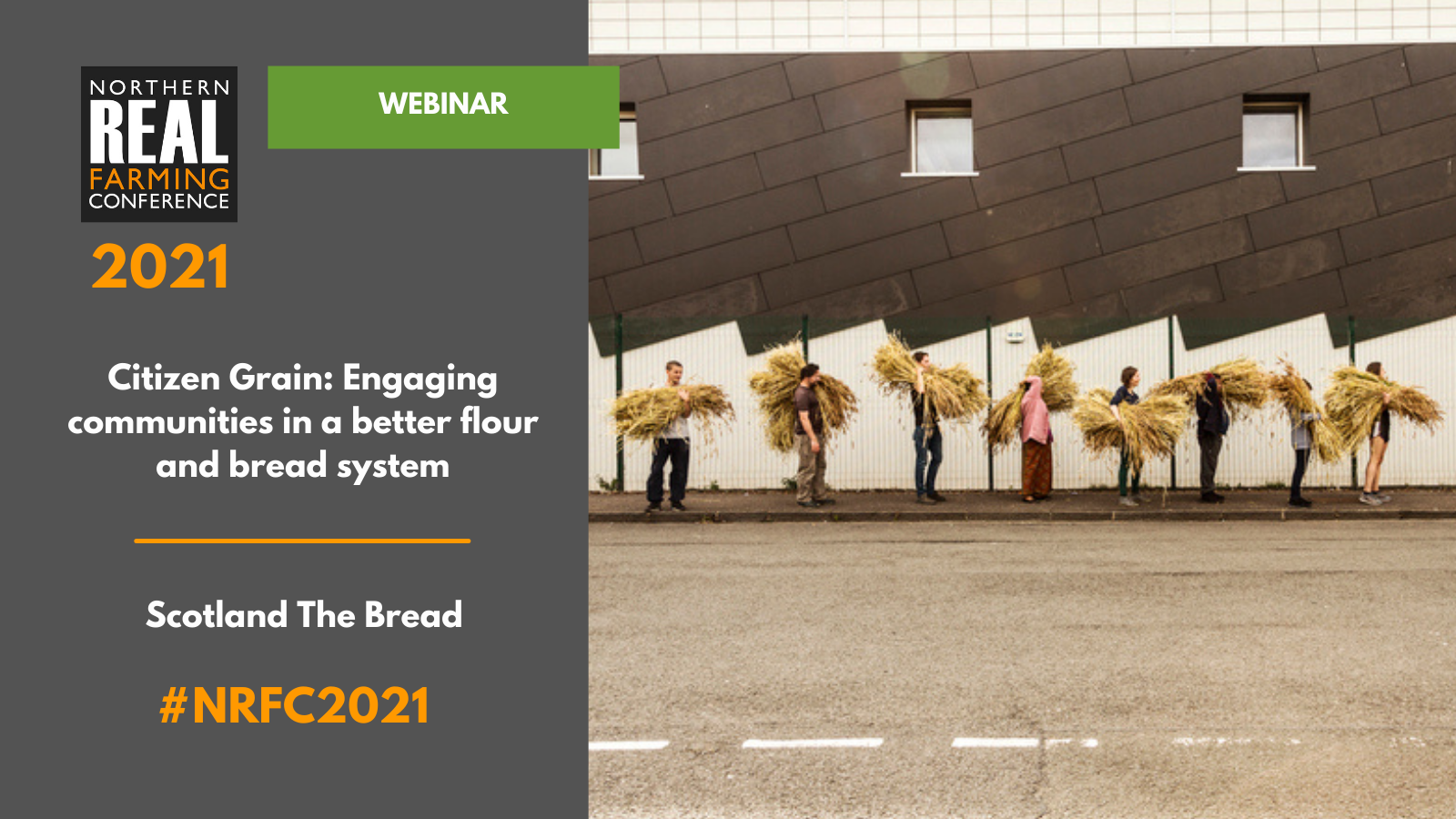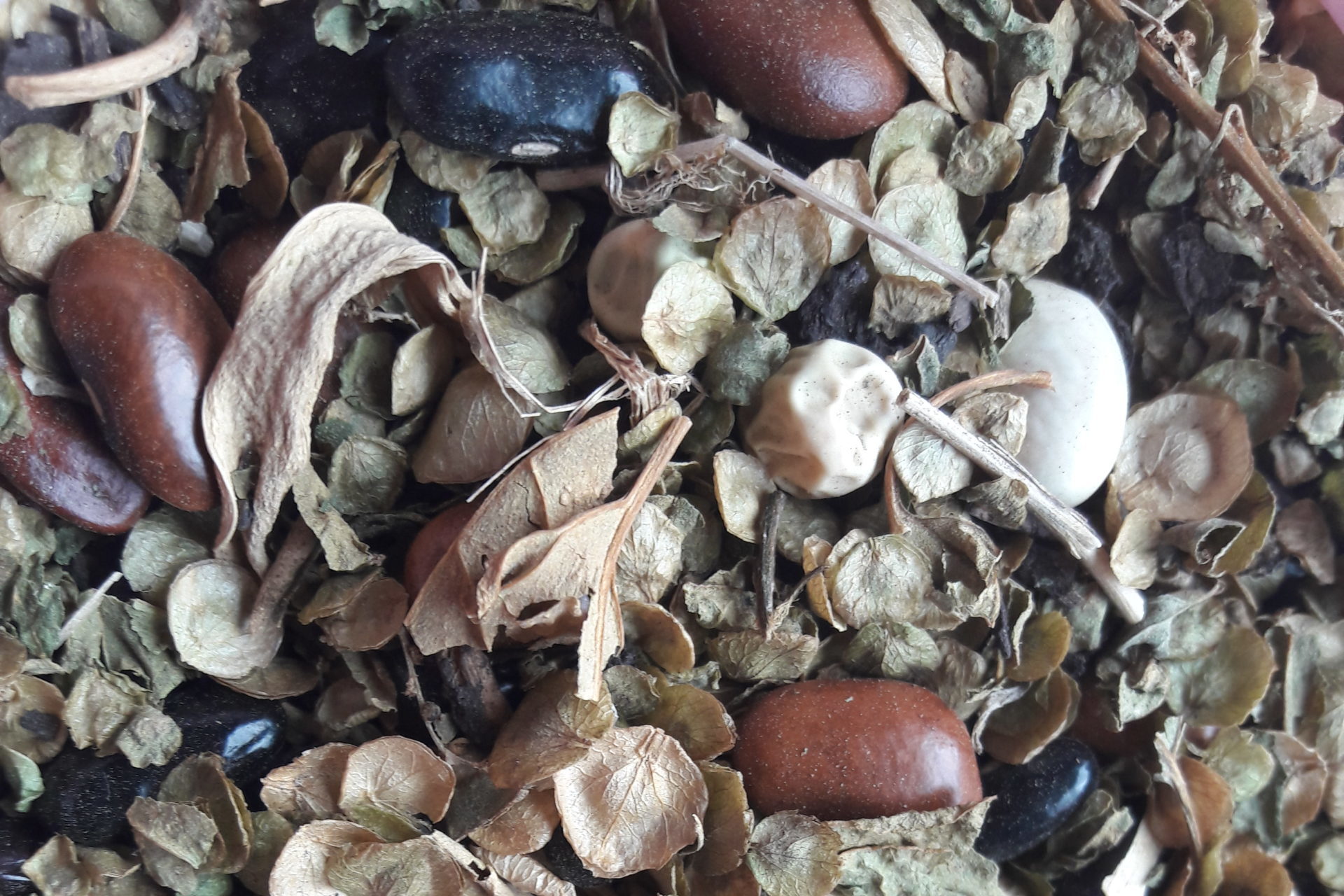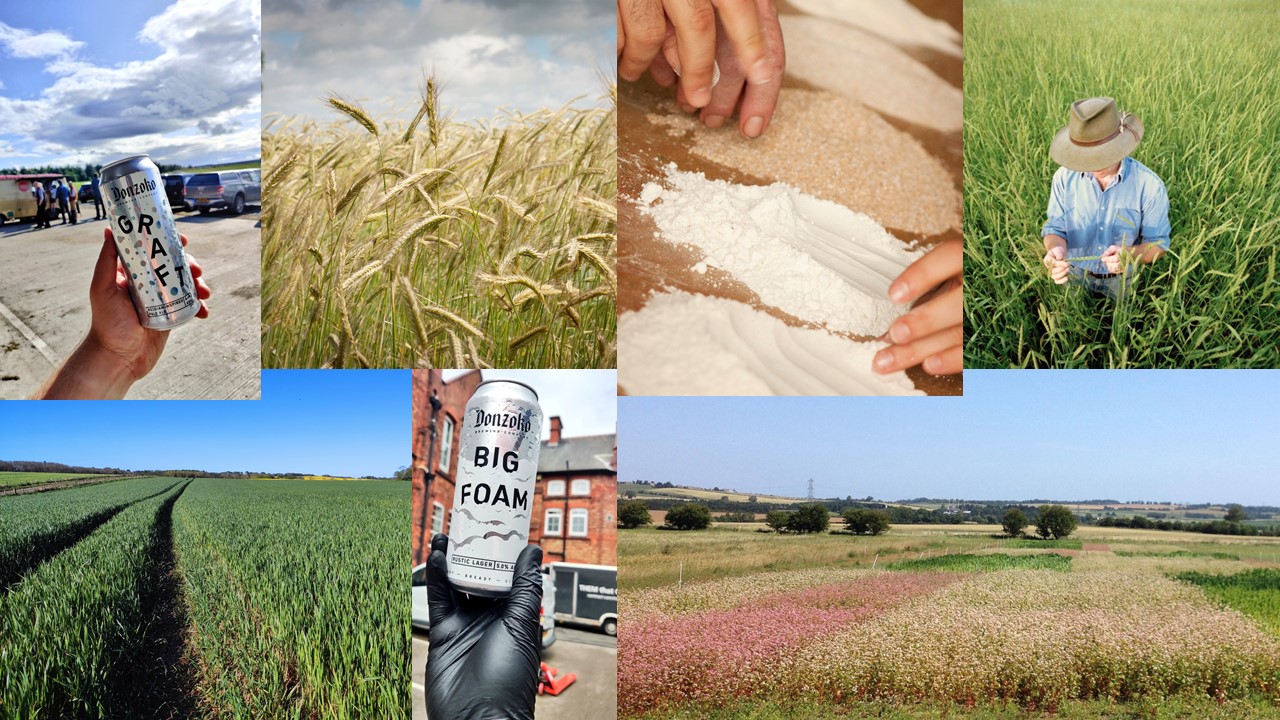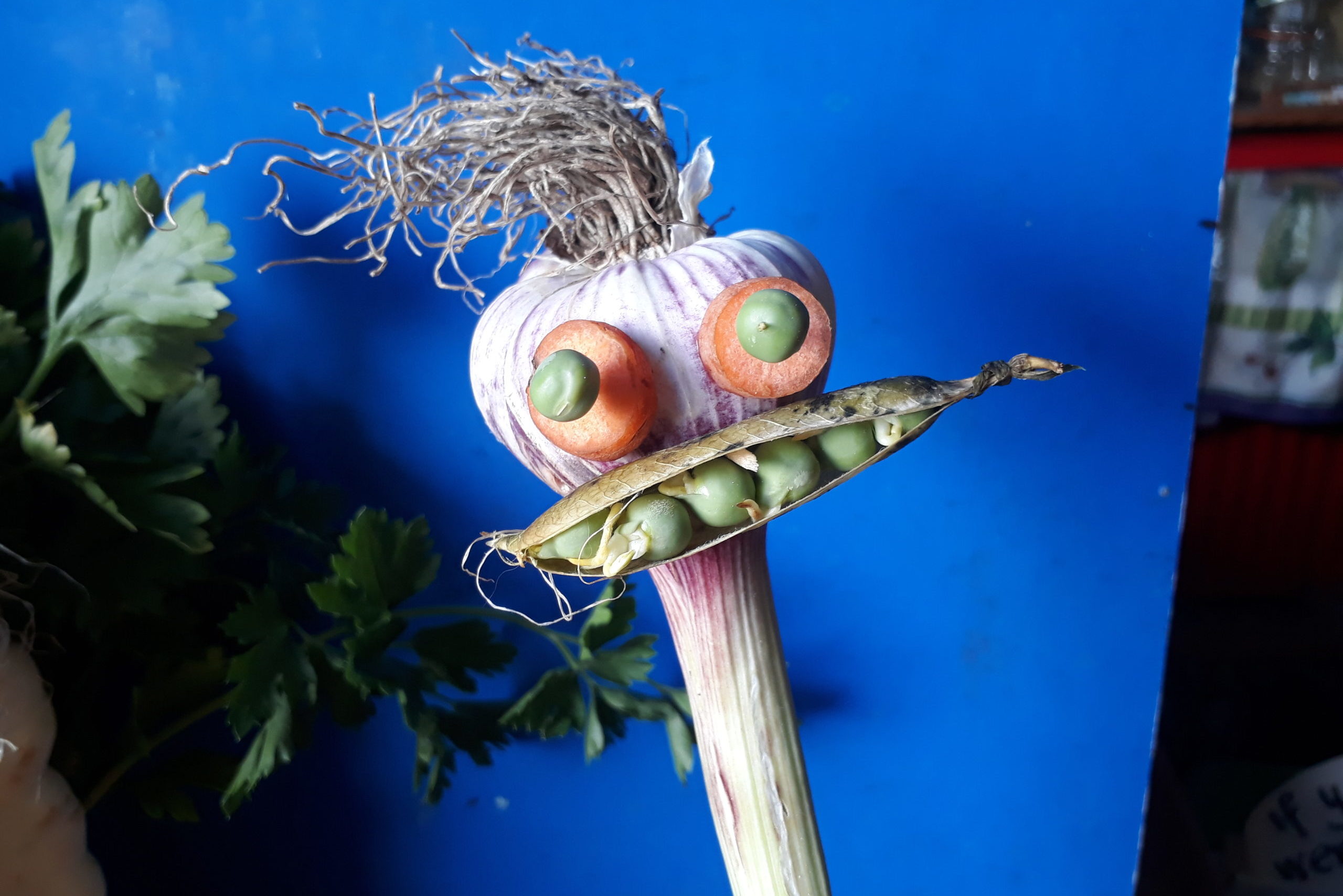Hosted by Scotland the Bread
Scotland The Bread is a collaborative project to grow better grain and bake better bread with the common purposes of nourishment, sustainability and food sovereignty. As well as researching more nutrient dense varieties of grain, growing them organically and milling on farm into fine wholemeal flour, we lead a number of projects aiming to engage Scottish communities in a flour and bread system that is healthy, equitable, locally controlled and sustainable.
In this session we will share the practical approaches we are taking to ensure access to better flour, better bread and an understanding of the grain system for all. We will hear the voices of communities involved in our Soil to Slice and Flour to the People projects and a description of our inclusive ‘People’s Plant Breeding’ approach to seed selection. There will also be the opportunity to learn about research being undertaken into a progressive ‘people nourished per hectare’ standard which – although currently focusing on our grain production – could transform how we value all food we produce.
Scotland The Bread wants to work collaboratively with others involved in creating a better grain system. While demonstrating our approach to this task, we hope that this session will provide the opportunity to connect with others in North England and Scotland interested in joining us to inspire change.
Speakers/hosts include:
Tara Wight – PhD student in crop science, University of Edinburgh
In 2020 Tara carried out a professional internship placement with Nourish Scotland and Scotland The Bread exploring the potential for collaborative and participatory seed selection to improve crop development and community engagement in local grain systems.
Daisy Martinez – Food Systems Research Assistant, University of Edinburgh
Daisy is part of a team – also including Dr Lindsay Jaacks and Dr Alfy Gathorne-Hardy – from the University of Edinburgh working on a research collaboration with Scotland the Bread that aims to understand how Scottish grain growing, flour milling, and bread baking can provide good quality jobs for the people of Scotland and looking to develop a ‘people, jobs and species nourished per hectare’ model that has the potential to improve how we measure food environments.
Sam Parsons – Estate Manager, Balcaskie Estate
Sam manages the thirteen farms that form Balcaskie Estate in the East Neuk of Fife. In 2015, the estate decided to switch from a conventional to a more regenerative, organic farming system, with the aims of measuring quality over quantity and moving away from producing for commodity markets. Since 2018, the estate has been growing Scotland The Bread’s diverse grains, and now lends its name to the Balcaskie Landrace wheat milled on-farm and sold to professional and home bakers.
Philip Revell – Projects Coordinator, Sustaining Dunbar
A founder member of Sustaining Dunbar with vast experience in environmental and community projects, since 2019 Philip has been leading a team of ‘patchwork farmers’ growing grains in small garden plots across the district as part of Scotland The Bread’s Soil to Slice project. Through this project, the community hope to develop a locally adapted landrace which can be used to re-establish a local supply chain linking growers, millers and bakers in the area.
Lyndsay Cochrane – Project Coordinator, Scotland The Bread
(Facilitator) Lyndsay Cochrane coordinates Scotland The Bread’s community outreach projects, working to engage local people in the movement to create a better flour and bread system.




